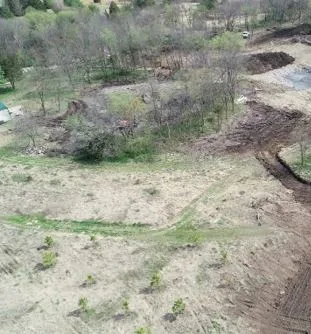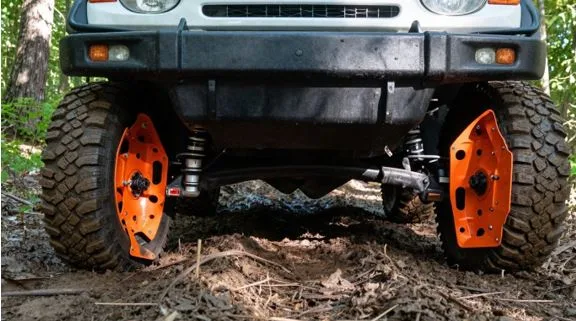Top Mistakes to Avoid After a Motorcycle Accident
Motorcycle accidents can be sudden, frightening, and disorienting. Even if the crash is minor, the aftermath can be overwhelming—physically, emotionally, and logistically. Knowing what to do—and what not to do—after an accident can make a significant difference in your recovery, safety, and legal standing. While personal injury considerations are important, there are several broader practical, safety, and financial mistakes riders should avoid.
Failing to Prioritize Safety
The first mistake many riders make after a crash is neglecting safety. After an accident, it’s natural to want to assess damage or speak with other parties, but your immediate priority should be your own safety and the safety of others.
- Move to a safe location: If possible, get yourself and your bike off the road to prevent secondary accidents.
- Check for injuries: Even minor crashes can result in delayed injuries like concussions, whiplash, or internal bleeding. Call 911 if anyone is hurt.
- Stay alert to traffic: Even after a collision, passing vehicles can create danger. Use hazard lights or reflective gear if you have it.
Failing to secure a safe environment increases the risk of additional harm, compounding the initial accident.
Not Seeking Medical Attention
Even if you feel fine immediately after a crash, skipping a medical evaluation is a major mistake. Adrenaline can mask injuries, and some conditions may not be apparent right away.
- Internal injuries: These may not show symptoms until hours or days later but can be life-threatening.
- Whiplash and spinal injuries: Symptoms may be mild at first but can worsen over time.
- Documentation: A medical record creates evidence of injuries in case legal or insurance issues arise later.
Prioritizing your health first ensures you address both immediate and hidden injuries.
Ignoring the Accident Scene
Leaving the accident scene or failing to document it properly can create unnecessary complications later. Even a seemingly minor incident can escalate if there are disputes about liability or damages.
- Take photos and videos: Capture your motorcycle, vehicles involved, road conditions, traffic signals, skid marks, and any visible injuries.
- Collect information: Get names, phone numbers, addresses, and insurance details from everyone involved, including witnesses.
- Avoid admitting fault: Statements like “It’s my fault” can be used against you later, even if the other party was partially responsible.
Proper documentation protects you and ensures the facts of the incident are clear.
Neglecting to Report the Accident
Some riders avoid reporting minor accidents to law enforcement or their insurance company, assuming it’s unnecessary. This can backfire in several ways:
- Legal requirements: In many states, you are legally required to report accidents that result in injury or significant property damage.
- Insurance claims: Failing to report promptly can jeopardize coverage or delay payouts.
- Dispute resolution: Without an official report, it becomes harder to prove what happened if questions arise later.
Filing a police report or notifying your insurance company promptly is essential to protect your rights.
Trying to Handle Everything Alone
Motorcycle accidents can involve complex issues—insurance, medical treatment, vehicle repairs, and sometimes legal disputes. Trying to manage everything on your own can lead to mistakes.
- Insurance communication: Respond carefully to requests, and don’t sign forms without understanding them.
- Repairs: Using an unqualified mechanic or attempting to handle bike repairs yourself can reduce safety and complicate insurance claims.
- Legal matters: Even if you aren’t pursuing a personal injury claim, consulting an attorney can help you navigate liability or property damage disputes.
Asking for professional help early reduces stress and prevents costly errors.
Overlooking Emotional and Mental Health
Motorcycle accidents can be traumatic, and the impact isn’t just physical. Many riders underestimate the emotional and psychological effects, which can affect recovery and daily life.
- PTSD and anxiety: After an accident, some riders experience heightened anxiety, trouble sleeping, or flashbacks.
- Depression: Physical pain, financial stress, and lifestyle disruptions can lead to depressive symptoms.
- Support: Talking with a mental health professional, support group, or trusted friends and family can aid recovery.
Neglecting mental health can hinder your ability to make sound decisions in the days and weeks after a crash.
Failing to Maintain Proper Documentation
Documentation is critical after a motorcycle accident, whether for insurance, repairs, or personal records.
- Medical records: Keep detailed notes of doctor visits, prescriptions, therapy sessions, and rehabilitation.
- Repair records: Maintain receipts and reports for motorcycle repairs, parts, and labor.
- Expense tracking: Track lost wages, transportation costs, and other expenses resulting from the accident.
Proper records not only protect your financial interests but also ensure clarity if disputes arise.
Returning to Riding Too Soon
One of the most common mistakes riders make is returning to the road before fully recovering. Physical injuries, mental trauma, or even damaged equipment can make riding unsafe.
- Physical readiness: Healing fractures, strains, or concussions fully before riding reduces the risk of further injury.
- Mental readiness: Fear or hesitation after a crash can impair judgment, reaction time, and confidence.
- Equipment check: Ensure your bike is properly repaired and functioning safely before taking it out again.
Rushing back can lead to more accidents and prolong recovery.
Not Reviewing Your Insurance Coverage
Many riders don’t fully understand their insurance coverage until after an accident. Overlooking this can leave you underinsured or struggling to cover expenses.
- Liability limits: Know your policy’s coverage limits for property damage and injuries.
- Uninsured/underinsured coverage: Accidents with uninsured motorists can create unexpected financial burdens.
- Medical or personal injury coverage: Some policies include coverage for medical bills, lost wages, or rehabilitation costs.
Reviewing and understanding your policy before an accident can save significant headaches afterward.
Ignoring Preventive Measures for the Future
Finally, many riders fail to take steps to prevent future accidents. While you can’t undo a crash, you can reduce the likelihood of another one.
- Safety gear: Helmets, gloves, jackets, and proper footwear protect against injuries.
- Defensive riding: Always anticipate the actions of other drivers and ride within your limits.
- Maintenance: Regular bike inspections and maintenance prevent mechanical failures.
- Training: Consider advanced motorcycle courses to improve skills and confidence.
Taking proactive steps can help you feel safer and more prepared on the road.
Conclusion
Motorcycle accidents are stressful, but avoiding common post-accident mistakes can make a huge difference in your safety, recovery, and peace of mind. From prioritizing immediate safety and seeking medical attention to documenting the scene, handling insurance matters carefully, and tending to your mental health, every step matters.
By approaching the aftermath with caution, organization, and awareness, riders can reduce complications, protect their rights, and get back on the road safely. Accidents are challenging, but thoughtful, informed actions after the crash can prevent further harm and help you move forward confidently.




